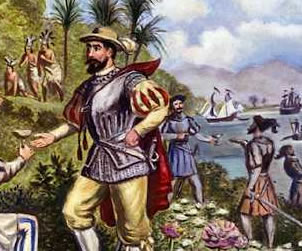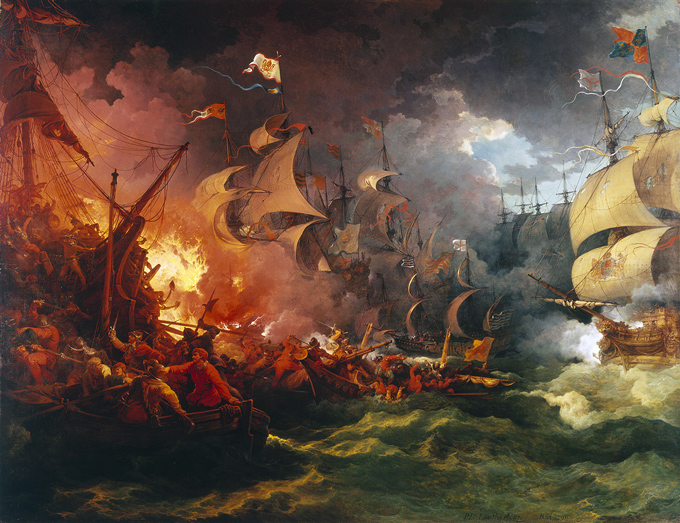Finding a Shortcut to Asia
The Age of Exploration started in the 1400's. Europeans were desperate to get spices from Asia. Spices were used to preserve foods and keep them from spoiling. Spices, however, were expensive and dangerous to get. Traders had to travel parts of the dangerous Silk Road (a land route from Europe to Asia) to get them. Because the Silk Road was frequently closed due to various wars, European rulers began to pay for explorations to find a sea route to Asia so they could get spices more easily and for cheaper. Portugal was the first European country that sent explorers to search for the sea route to Asia. Prince Henry the Navigator started a school of navigation and financed the first voyages to the west coast of Africa. In the 1400's, however, sailors were afraid of sea monsters and boiling hot water at the Equator, so progress was slow. After Bartholomew Dias and his crew made it to Africa's Cape of Good Hope, Vasco da Gama and his crew became the first to sail around Africa and through the Indian Ocean to India.
Spain Takes the Lead
Spain, however, would soon take over the lead in exploration. When Portugal refused to finance Christopher Columbus' idea to sail west to find the shortcut to the Indies, he convinced Spain's King Ferdinand and Queen Isabella to finance it. On October 12, 1492, Christopher Columbus and his crew reached the island of Hispaniola after three months in the Atlantic Ocean. Although Columbus believed he had reached Asia, he had actually discovered the entire continent of North America and claimed it for Spain.
The Expansion of the Spanish Empire
 |
Ponce de Leon |
Spain quickly colonized North America. In 1513, Ponce de Leon discovered Florida while searching for the mythical Fountain of Youth. The first permanent European settlement in the New World was later established at St. Augustine in 1565. Meanwhile, Hernando Cortes crushed the Aztec empire in Mexico and claimed all of Mexico for Spain. Francisco Pizarro did the same to the Incan Empire in South America. Other explorers such as Francisco Coronado and Hernando de Soto claimed other portions of North America for Spain. Vasco Nunez de Balboa even claimed the entire Pacific Ocean for Spain. As the Spanish empire grew, explorers forced native populations into slavery and to convert to Christianity. Meanwhile, France began to explore North America.
France and England Join the Party
 |
Anglo-Spanish War (1585) |
Explorations by Giovanni Verrazano and Jacques Cartier resulted in French claims of much of Canada and the north Atlantic coast. England would soon attempt to make its presence known by financing pirates such as Francis Drake to plunder Spanish settlements and steal gold from Spanish sea vessels. England also established its first settlement in the New World at Roanoke Island, North Carolina. Territorial disputes and constant pirating resulted in a series of major wars between the competing nations. In 1588, the British Army defeated the vaunted Spanish Armada. The British victory proved a serious blow to Spanish influence in the New World.
The English vs the French
 |
Pocahontas - Daughter of Powhatan and Wife of John Rolfe |
Although Spain still controlled much of the New World after the defeat, England and France were able to accelerate their colonization. England soon established successful colonies throughout the eastern portions of the United States, and France had colonies in Canada and the middle portions of the United States. By the mid 1700's, new territorial disputes between England and France eventually resulted in England gaining control over much of North America after the French and Indian War. English colonies flourished in North America until the 1770's when the colonists declared their independence. The Revolutionary War ensued and resulted in independence for the colonists. The United States of America was formed.